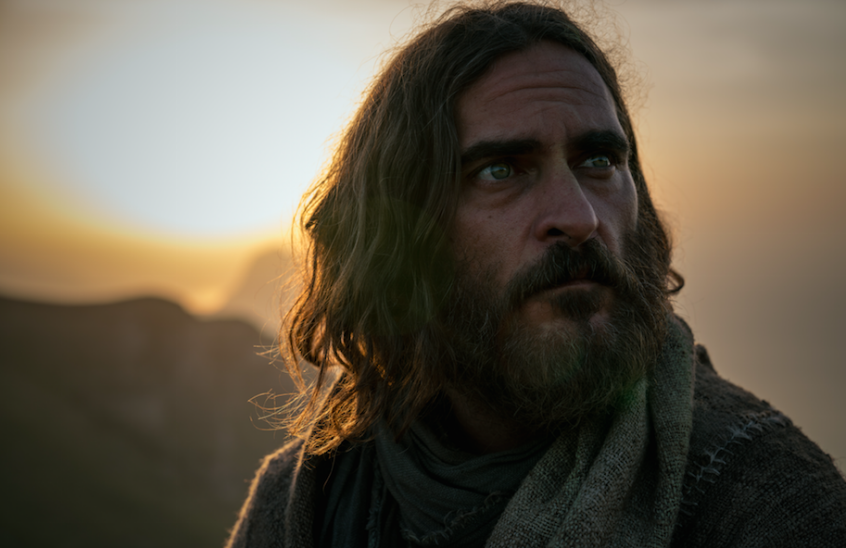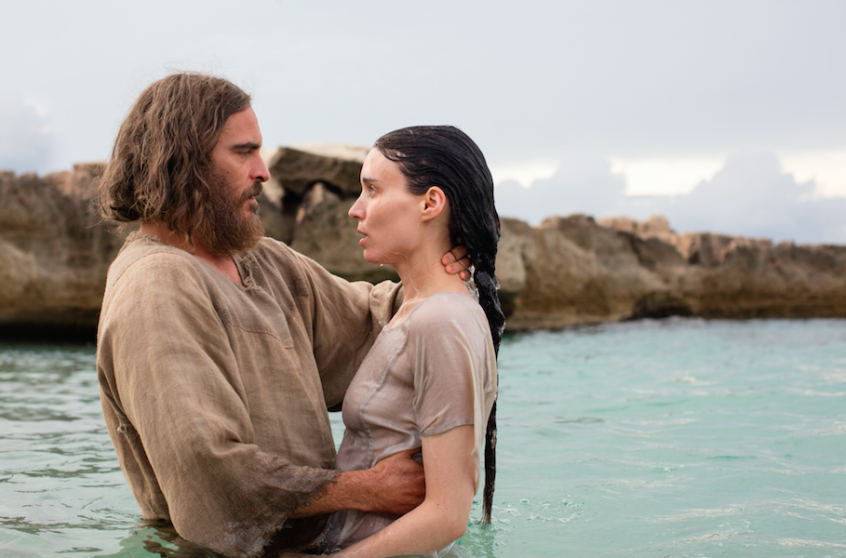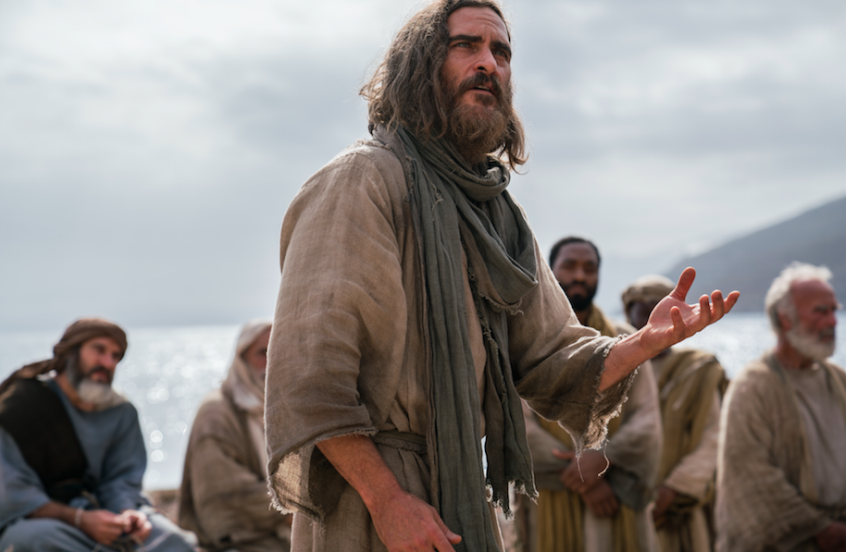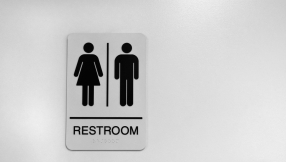Joaquin Phoenix has revealed that he studied the four New Testament Gospels in preparation for playing Jesus in the new movie Mary Magdalene, and spoken movingly about how Christ's 'heart-wrenching' example in the Garden of Gethsemane and on the cross inspires him 'to be more empathetic and considerate and forgiving'.
The Hollywood megastar opened up to Christian Today about how he relates to Jesus's capacity for forgiveness and compassion, saying: 'Partly the message of this film is that these qualities are something that we all have access to and can possess. It is not easy; in fact it is the most difficult thing to do as a human, but that is our goal – or at least that is my goal, to be more empathetic and considerate and forgiving.'

Asked whether he hesitated about taking on the role of Jesus in the movie directed by Garth Davis and written by Helen Edmundson and Philippa Goslett, the award-winning 43-year-old actor says: 'I always do [hesitate], every role. But it was like the battle between what I felt and what I thought and ultimately I had to go with what I felt. I don't know why but I just felt a strong pull to have this experience. I felt like Garth was somebody that was going to approach this in an honest way, like he didn't have an agenda other than finding a deeper truth and that appealed to me.'
And asked how he prepared for the role, alongside Rooney Mara who plays an intense, God-seeking Mary Magdalene, Phoenix explains: 'I have seen other films [portraying Jesus] but I didn't watch them again – I wanted it to be its own thing. Of course I went through Matthew, Mark, Luke and John, and sure, just a wealth of information out there – almost overwhelming, daunting how much there is, all the different interpretations.
'And at some point you feel, how do I make this personal? How do I have these feelings? And in some ways it is something that we are all familiar with, the struggle between the spirit and the flesh, and I think it's a conflict that we all have. Of course Jesus felt that very strongly. I guess I have always thought of him – which I think sometimes is typical – as the Spirit. And I realised for the Crucifixion to be what makes it such a sacrifice is that there was the human also that didn't want to leave.
'In Gethsemane he says "Let this cup pass" – there are so many translations – and that is just heart-wrenching to read that, and that was really key for me to find somebody that loved the earth and loved other people and loved the idea of seeing somebody else and touching them and feeling water on his skin and all these very human feelings, and he didn't want to let that go, but the courage in saying "Not my will but thy will". And there is something so powerful about that and it really resonated strongly with me.'
Interviewed by Christian Today in a central London hotel, dressed casually with earphones draped around his neck, the disarmingly unpretentious star expands on Jesus' character: 'Sometimes he is shockingly angry with the other disciples, sometimes they don't seem to understand what they are saying – he seems genuinely frustrated, like, "I have explained this to you so many times, how can you not see it".'
Phoenix plays a uniquely human, vulnerable and at times angry Jesus. 'It was important to try to find all those different parts because yes, he was a human and under this immense pressure of feeling things so strongly,' he says now. 'You just imagine him to be such a very sensitive, empathetic person, and so you walk into a room and there is 20 people and you feel everybody's needs, and what a burden that must be, it is so strong.
'It suddenly occurred to me when I thought about the healings and how his notoriety and his message spread so quickly and so powerfully, I thought about the people during that time – if you had a physical or mental disability or blindness, it was considered that you were possessed by demons. And if you were considered to have been possessed by demons you were shunned from society. And here was this man that not only didn't shun you, but embraced you and validated you and looked into your eyes and touched you, and that was the healing, that is so powerful.

'You can imagine the word spreading – this man who approaches the leper or the disabled and is right there with them and that is so beautiful to me, because we still see that in our society, the homeless, disabled, we put away, out of sight, out of mind, and here was this man who saw their worth. He is constantly talking about forgiveness and he is really challenged by his own teachings when they come to take him away and he knows what's going to happen, he knows he is going to be crucified and he doesn't fight back and he was even able to forgive them – 'Forgive them Father for they know not what they do' – and he was able to forgive those who were taking away his own life.'
Born in Puerto Rico to parents from the US mainland, Phoenix is the third of five children including his older brother River, who tragically died of an overdose when Joaquin had just turned 19. His father John was a so-called 'lapsed' Catholic from California and with European heritage, and his mother Arlyn, from the Bronx in New York, was of Hungarian and Russian Jewish descent. The couple had a complicated relationship with faith.
At once proud of his upbringing and modest, Phoenix rejects the idea that he had it hard, and reflects now: 'My life was actually not that challenging. I think there is an idea in the press for some reason that I had a very challenging life – I actually had a really brilliant life. I grew up quite poor but only now do I look back and think, my God, we were seven people in a one bedroom apartment in the valley but it would never occur to me as a kid – my parents were so optimistic and they had such profound faith that there was never that kind of cloud hanging over us that it was a struggle. We always had faith that things were going to work out. We always trusted in that, and so it is something that I have experienced.'
Phoenix makes it clear that he is not a doctrinal believer, but he is highly respectful of faith and clearly values it. 'I don't have one particular faith,' he says. 'I don't adhere to one particular belief system. I find value in so many different expressions of faith but I admire and respect when people do have a strong faith and a particular faith. I think part of it is: life is so subjective, we all have wildly different experience of the world; it's partly: whatever captivates you, whatever imbues you with a sense of decency and a basic moral code – that you really adhere to – that's powerful, and that's wonderful.'

The movie embellishes the four Gospels and portrays Mary Magdalene as a pious and key disciple, who leaves her family, is personally baptised by Jesus and is present for the major events of Jesus's ministry and life, including, for example, at the kiss of betrayal by Judas at Gethsemane. After the (accurate) first reappearance to her following the resurrection, she argues with the male disciples, especially Peter, over the legacy of Christ. Some have interpreted the message as a dangerously feministic one, but this depiction may be too crude, and limiting, for the highly intelligent Phoenix.
'For me the message of the film in some ways is that everybody has access to God, that you don't have to go to a particular building, you don't have to have a particular person tell you what's acceptable or not; we all have access to that Spirit. And I think what's so powerful is, here is this woman who desperately wants to know God and feels the connection, yet because of the patriarchy, it is assumed that she is possessed in some way. And Jesus comes and says "There are no demons here, what you feel in your heart is the truth and you have the right to pursue that".
'And so at the end, when Peter challenges her, it is just a way of her saying: "I don't need your approval to follow God or to follow Jesus; I have access to it in here", and that's so powerful.'
Mary Magdalene is released in cinemas across the UK on March 16. You can watch a trailer of the movie here.













